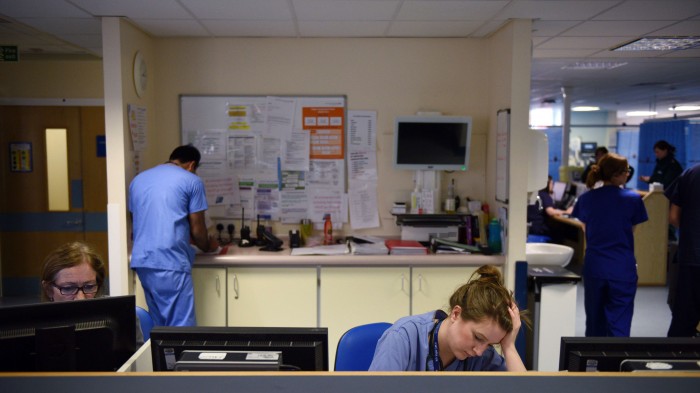DeepMind’s New Blockchain-Style System Will Track Health-Care Records

Alphabet’s artificial intelligence outfit, DeepMind, plans to build a blockchain-style system that will carefully track how every shred of patient data is used.
The company, which is rapidly expanding its health-care initiatives, has announced that it will build a tool that it calls Verifiable Data Audit during the course of this year. The idea: allow hospitals, and potentially even patients, to see exactly who is using health-care records, and for what purpose.
Like blockchain, the system will use cryptographic mathematics to keep an accurate record of what’s happened in the past. Every time a piece of data is used, a new code is generated, which is based on all previous activity. That means that if someone later goes back to edit a previous record—say, to hide the fact that they used a piece of data for a particular purpose—it would mess up every subsequent record and be quickly revealed.
The tool will initially be tested with hospitals that DeepMind is already working with in the U.K., including London’s Royal Free Hospital. DeepMind says that hospital staff will be able to see how the company is utilizing the data in real time, as well as setting up automated alerts to signal unusual use. The hospitals could open access to patients at some point in the future.
The process won't be totally straightforward. Health-care records are notoriously fragmented in Britain, and if it's to stand any chance of expanding the system in the future, DeepMind will need to ensure that it can operate across different database systems. It will also need to find ways to ensure data use is logged properly, in case software is somehow able to pass information off to other programs during a single use.
Still, the work could be worthwhile for DeepMind. It is quickly developing a series of different health-care tools, including software that can alert medical staff to early warning signs of illness in patients, AI systems to diagnose eye disease, and machine-learning approaches to guide cancer treatment. But early on in its medical work, the organization came under fire when it came to light that the U.K.’s National Health Service had been sharing more data with it than had been publicly acknowledged.
Mustafa Suleyman, cofounder of DeepMind, tells the Guardian that the development of the new data audit tool pre-dates those issues. Still, it’s clearly an attempt to ensure that it remains squeaky clean in the future, leaving an incredibly clear and indelible audit trail in its wake.
The news is further evidence that blockchain is rapidly shrugging off its close ties to the notorious cryptocurrency, Bitcoin. While the technology does underpin the currency, the digital ledger can be used for plenty else. Maersk, the world’s largest shipping company, has been testing it to keep track of cargo, for instance, and Wal-Mart to record and log the origins of produce to improve health and safety standards. Now, add medical records to the list.
(Read more DeepMind, Guardian, New Scientist, “DeepMind Will Use AI to Streamline Targeted Cancer Treatment,” “The World’s Largest Shipping Company Trials Blockchain to Track Cargo,” “Is DeepMind’s Health-Care App a Solution, or a Problem?”)
Keep Reading
Most Popular
Large language models can do jaw-dropping things. But nobody knows exactly why.
And that's a problem. Figuring it out is one of the biggest scientific puzzles of our time and a crucial step towards controlling more powerful future models.
The problem with plug-in hybrids? Their drivers.
Plug-in hybrids are often sold as a transition to EVs, but new data from Europe shows we’re still underestimating the emissions they produce.
Google DeepMind’s new generative model makes Super Mario–like games from scratch
Genie learns how to control games by watching hours and hours of video. It could help train next-gen robots too.
How scientists traced a mysterious covid case back to six toilets
When wastewater surveillance turns into a hunt for a single infected individual, the ethics get tricky.
Stay connected
Get the latest updates from
MIT Technology Review
Discover special offers, top stories, upcoming events, and more.